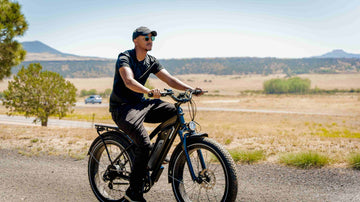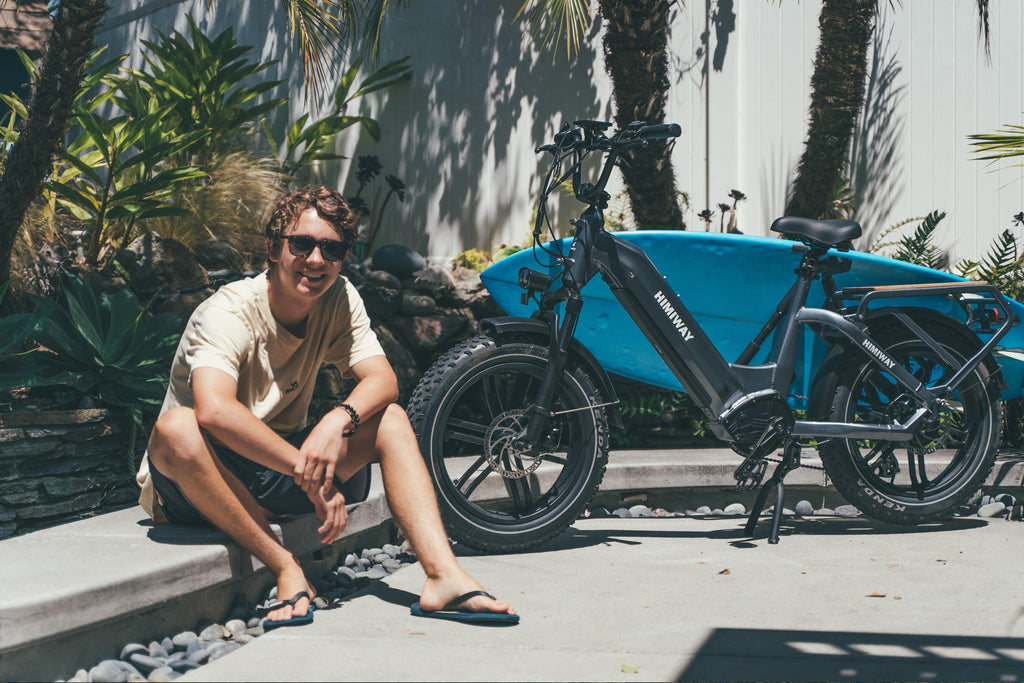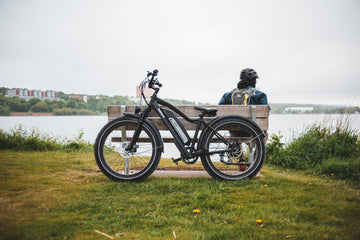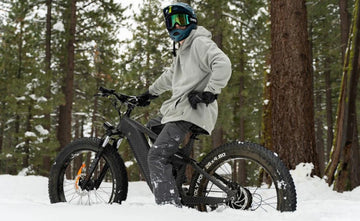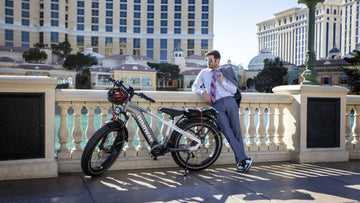Every day the new wave of technology featuring electric assist bikes or ebikes seems to be gaining popularity worldwide. More people are purchasing and using them. But like every vehicle on the roads, mountain trails, or parks, the dangers of the spreading use of electric bikes are likely to increase. Hence, most countries are taking a uniform approach to establishing ebike laws and regulations.
As these laws are beginning to take shape depending on the region, it’s important to know the electric bike laws and safety requirements of where you use your ebike. With ebikes classes explained better, you can learn how your location copes with this invention. In Canada, the regulations for each province vary.
This article discusses all you need to know about Canada’s ebike laws and regulations.
Are electric bikes legal in Canada?
Own and using electric bikes in Canada is legal. Canada is even more lenient on importing and exporting power-assisted bicycles than the taxes, levies, or restrictions on motorcycles, automobiles, and other combustion engine vehicles.
Technically, the ebikes are called “assist bicycles” or “power-assist bicycles,” which exempt traditional motorbikes or mops with internal combustion engines. The latter falls under a separate category and is subject to different laws. For standard human-powered bikes, the rules can expand to cover motor sizes, speed, and age limits. But there are more ebike laws.
If you’re going to own an ebike in Canada, some pointers you should know include:
-
Instead of a class system for electric bikes, Canada has a limit of 500W output on ebikes to travel lesser than 32 km/h on ground level. Therefore, in Canada, modifying the vehicle’s motor to generate a higher speed than 32Km/h or 20miles/h is prohibited.
-
The ebikes must have steering handlebars, pedal assists, and throttle function to avoid the sole control by the battery. It functions to disengage the engine when the rider stops pedaling.
-
When riding the unrestricted ebike, the rider must always wear a motorcycle or bicycle helmet.
-
The age limits for riding the electric bicycle may vary for each province. For instance, in Alberta, you must be 12 years. In British Columbia, the age requirement is 16 years or older.
-
It’s necessary to have labels for ebikes stating that the vehicle meets all the essential federal and provincial requirements.
-
The attached motor must run on electricity instead of gas to regard the vehicle as an ebike.
In Canada, ebikes are described as two or three-wheeled bicycles running on pedals and batteries. All the Himiway products in Canada pass these takeaways with their models with 500W motors, steering handlebars, fully operable pedal assists, and throttle functions. Himiway Big Dog Electric Cargo Bike validates all the required ebike rules in Canada with a seven-gear system and 48V 20Ah Samsung/LG battery for long-range rides.

Do you need a license for an e-bike in Canada?
Most Canadian provinces don’t require a license to own or operate an ebike. However, certain provinces are the exception. Electric bikes in Canada already have power and speed limitations making the vehicles safer to maneuver than motor vehicles with higher speeds. Therefore, the built-in safety and ease of use make formal training, insurance, or federal license unnecessary unless a local municipality specifically states so.
Also, you should know that operating the e-bike with a suspended driver’s license from drunk driving invalidates your permission to drive the electric bike. If the license suspense is for other reasons like aggressive driving, or speeding tickets, you still have the chance to operate the ebike.
Ebike Provincial Requirements in Canada
With the amendments in Canada’s Motor Vehicle Safety Regulations since 2020, federal authorities don’t impose regulations on ebikes. The responsibilities of defining and regulating ebikes now fall within the jaws of the provinces.
Here’s a breakdown of how the provincial regulations:
Alberta
Although riders in Alberta don’t need licenses, insurance, or registration, wearing a helmet is compulsory. The requirement is to be at least 12 years old to operate the ebike. Riders under 16 years of age don’t have permission to carry passengers. And even if the rider passes the age limit, the power-assist bicycle needs a passenger-designated seat. The passenger shouldn’t ride on the handlebars or stand on the back of the bike.
British Columbia
In British Columbia, the ebikes are called “motor-assisted cycles,” but the requirements are almost the same. Only riders that are 16 years old or more can operate the ebikes in British Columbia. Like most provinces in Canada, there’s no need to insure the electric bicycle, carry a driver’s license, or have registration. However, wearing a helmet and following all bicycle safety laws and regulations is compulsory.
Ontario
Even after Canada defined ebikes as legal federally, Ontario was one of the last provinces to legalize power-assisted bicycles for road use. The ebikes Ontario laws guiding are similar to British Columbia but a bit stricter. The rider must also be 16 years of age or above to operate the electric bicycle. There are additional restrictions on ebikes. For instance, the province allows ebikes on sidewalks and roads but not on highways or expressways. Also, the maximum weight of the ebike is 120kg with a braking distance of nine meters. Any vehicle above the speculated weight doesn’t classify as an ebike in Ontario.
Manitoba
Just like all areas of Canada, Manitoba requires all ebike operators to wear a properly secured helmet to fit on the rider’s head. The rider has to abide by all rules and regulations the Canadian government sets to control the use of standard bicycles and vehicles. The significant difference here is that the ebike riders in Manitoba must be 14 years old or above. Also, the cycle format allows riders to move in a single form unless passing turning or another cyclist.
New Brunswick
The ebikes laws in New Brunswick are in line with federal law, including the rules of riding the standard bicycles and vehicles. However, the exception in this province permits ebikes on the sidewalks restriction. Also, the ebikes must have seats about 68cm off the ground, wheel rims larger than 22cm, and a headlight for visibility if the ebike is out at night. There’s no specific information on the age limit for operating the electronic bike in New Brunswick. Furthermore, the operator of the ebike shouldn’t have a DUI conviction.
Saskatchewan
In Saskatchewan, all electric-assist bicycle riders must be at least 14 years of age ad follow the Traffic Safety Act rules for standard vehicles. Only vehicles that combine electric motor assistance and human pedal power are considered unrestricted electric bikes. Also, the rider doesn’t need a driver’s license, insurance, or registration to operate the ebike.
Nova Scotia
Like New Brunswick, there’s no information concerning the age limit for ebike rides in Nova Scotia. But there’s a need for them to wear a helmet with a chain strap. You may need to contact your local law enforcement concerning this area. There is no cyclist restriction unless in places with “No bike” signs. Riders must maintain a single file on all highways except when passing turnings and other cyclists.
Prince Edward Island
PEI was the only province that classified ebikes as limited-speed motorcycles and ensured they met the same safety requirements as mopeds. Due to this, registration and license were required. Only recently were electric bike rules associated with traditional bicycles and vehicles on roadways. The operators must wear helmets and be 16 years or older to ride ebikes in PEI.
Quebec
Ebike riders in Quebec need to be 14 years or older. But until riders are above 18 years, they need a class 6D license – the same for scooters and mopeds. However, registration and insurance of the electric bicycle in Quebec are not necessary. Also, the ebikes have no constraint on all public roadways; the restriction is only on highways. Asides from these, the rider must observe all ebike rules and highway safety codes.
Newfoundland and Labrador
The minimum age to operate the ebike in Newfoundland is 16 years age. There’s no need for a driver’s license, registration, or insurance, but having an authorized permit for ebikes, scooters, and moped is compulsory. Not wearing a helmet here attracts a hefty fine.
Yukon, Northwest Territories, and Nunavut
These territories fall under federal jurisdiction. Therefore, riders must obey all federal rules. Nunavut has no specific age limit for ebikes. It’s important to wear a helmet and abide by standard bicycle and vehicle rules.
Conclusion
With more legislation worldwide to control the use of internal combustion engines, electric bicycles are on the rise. Depending on the province within Canada, there are different ebike rules. Even after finding your best Himiway products, staying informed and following the laws and regulations in your location to uphold safety is crucial.














